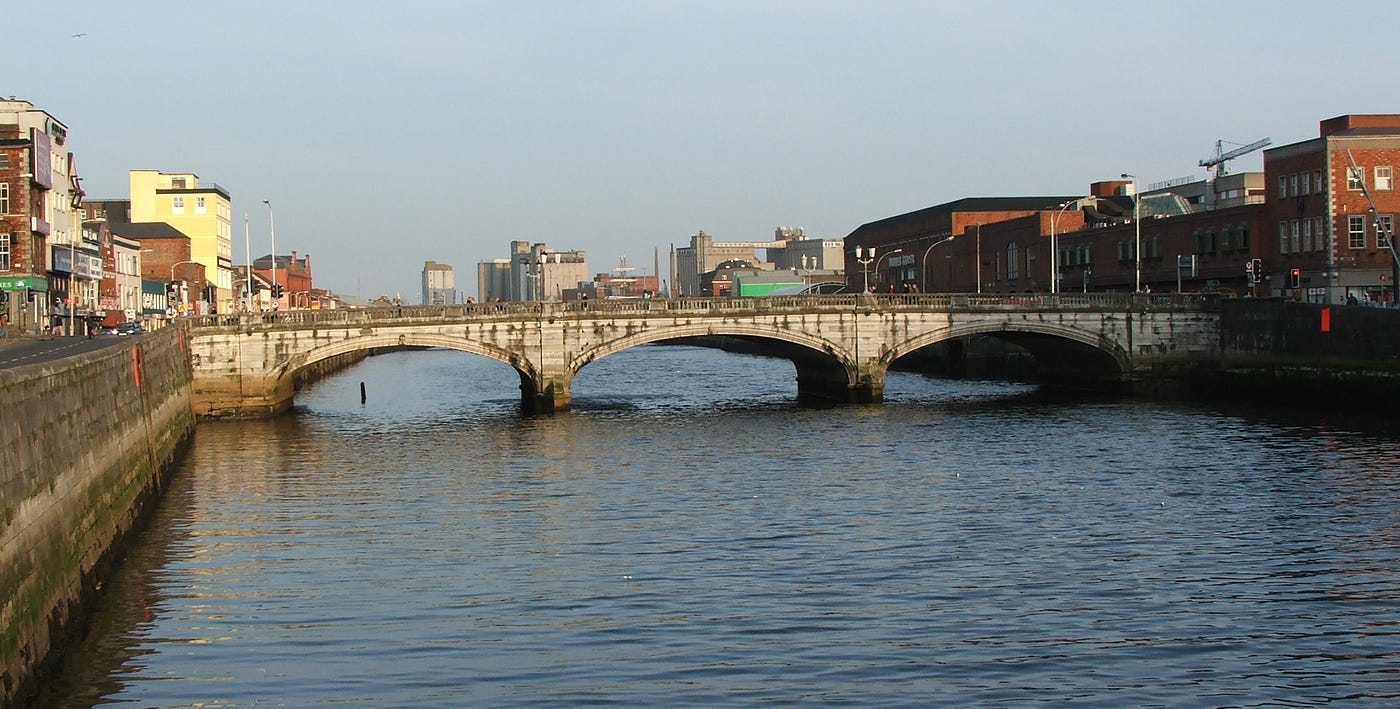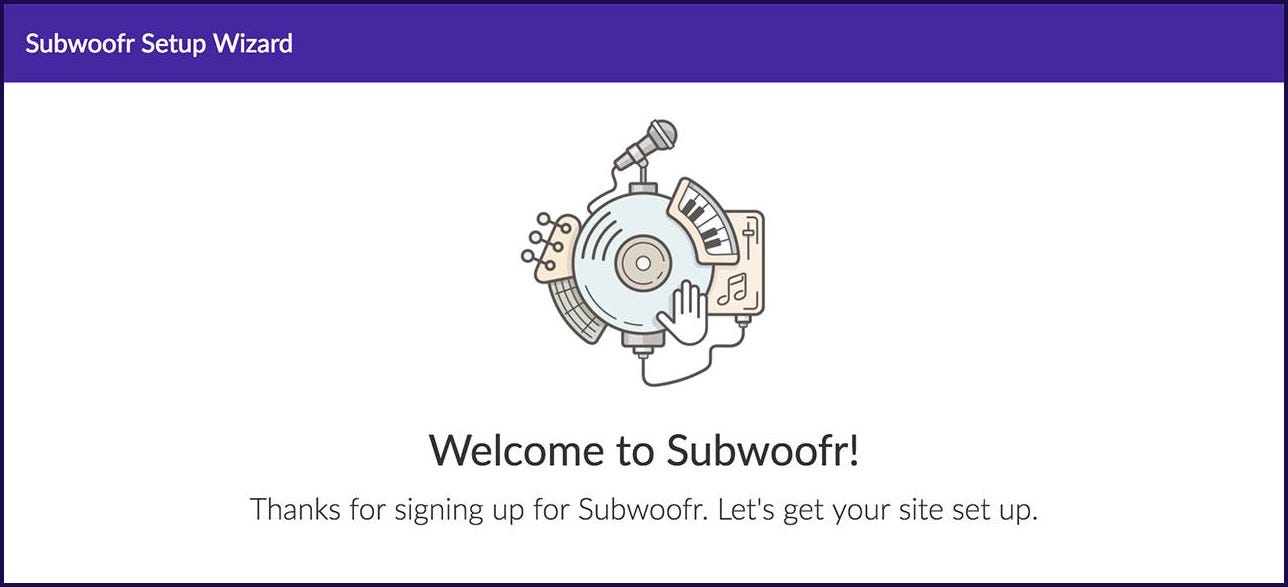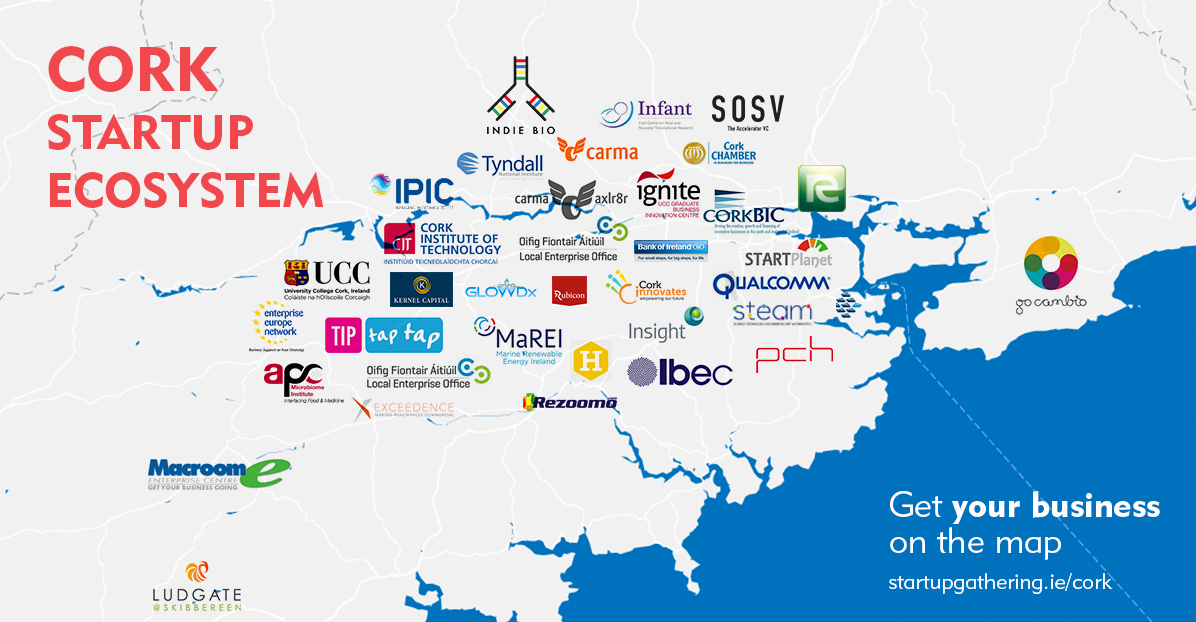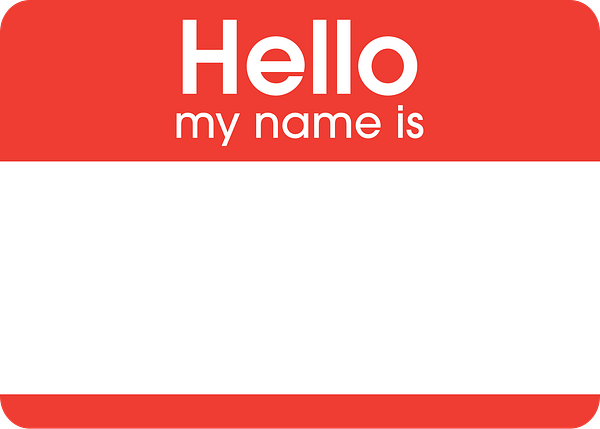April 14, 2016 • 8 minute read
Launching a startup in Cork

Last night I was on a panel for the first Built in Cork event of 2016, alongside Barry O’Sullivan (CEO Altocloud, Dragon’s Den), Niamh Bushnell (Dublin Startup Commissioner) and Mark O’Toole (Beachhut PR). As usual, it was hosted by the venerable DC Cahalane, unofficial Cork Startup Commissioner (he’ll kill me for saying that). The theme of the event was a SWOT analysis on Cork as a place to launch a startup. It was great to see such a good turnout, and eventually the audience got over the usual Cork shyness and asked some good questions!
Panel discussions are great because they focus on engaging with the audience, but sometimes it can be hard to say everything you would like to, especially when you are sharing the stage with such esteemed and insightful people. Prior to the event, I spent quite a bit of time reflecting on launching a startup in Cork, why we decided to do it and the highs and lows we’ve come across in the process. In this post, I’ll delve a little deeper into what it’s like to do it from Cork.
Why did we decide to start in Cork?
When you start a business, it’s important to be able to get the operation off the ground. For us at Subwoofr, this meant raising a small angel round, building a beta of our product and engaging with our target market. Because both myself and my co-founder, Simon, have strong connections and networks here in Cork, we were able to leverage those to get off the ground fast.

We started the business in September, launched our beta at the end of October, closed our angel round in December, went live with our first post-beta artist in January and started earning revenue in February. I firmly believe we’ve been able to do achieve all of these things so quickly because we stayed in Cork.
We gave a lot of thought to location when we started out. Ireland is a tiny market in the music industry. The UK market is 33x the size of Ireland’s, in spite of their population being just 13x ours. The US market is 119x. (Source: IFPI) Suffice to say, the vast majority of our customers are ultimately not going to be in Ireland. We also considered moving on the basis of access to investment and the incentives for startups. It’s no secret that the UK is far ahead of us when it comes to areas such as startup investment tax relief and capital gains.
Ultimately, we decided to stay because we knew that we would be able to iterate faster here in the early stages of our growth, and we can easily get to anywhere we need to from Cork. I can be in the centre of London in 2 hours. That’s faster than many people in England can get there. Dublin is just 2.5 hours by car or train. And we can get to pretty much anywhere we need to in the US or indeed the world with a single stopover in Heathrow or Amsterdam.
Supports available in Cork

Financially, we’ve gotten assistance from the Cork Local Enterprise Office which helps pay the salaries and cover part of some of our expenses. We’re very grateful for it, but if you’re thinking of starting up just make sure you are aware that it is issued on a receipt-and-claim basis, so you need to incur the cost first and then you get to claim back up part of some costs, like salaries and marketing expenses.
Seed funding and Enterprise Ireland support is nowhere near as easy to secure as many people make it out to be. If you think you’ll easily raise a seed round and get EI to match fund it you’re dreaming. It’s nowhere as simple as that — you need to prove a lot before you’ll get either seed funding or EI backing.
Both myself and Simon have strong personal networks that we were able to leverage to raise our angel round. That’s one thing I’d definitely say to people considering starting a business — never underestimate your own personal network. Former employers, co-workers, friends, friends-of-friends, family — when you’re starting out, especially in Ireland, these are the most likely sources of financial support you’re going to find.
What about non-financial supports?
Through Cork LEO we were assigned a mentor. I was skeptical at first about the whole mentor thing, but we’ve been blessed with a great mentor in Frank Hannigan. He’s on the board at RTE, was previously at Hot Press and has a wealth of knowledge and connections in media. Aside from all that, however, Frank has been great at helping us stay focused on our overall vision and ambition. When you launch a startup, especially one with grand, global ambitions, it can be very tempting to get sidetracked by small opportunities to keep yourself afloat. In some cases, you might have to take these, but they can be extremely distracting and set you completely off course from your vision and strategy. Frank has been brilliant at getting us to visualise and focus on our primary mission and ensure that we’re always striving to get there.
We’ve also been on the first phase of the New Frontiers program, and you have other programs available like IGNITE in UCC, and the Ludgate Hub in Skibbereen where you can get office space and seed funding.
The struggles
This is definitely not limited to Cork, but access to investors isn’t great here. There’s only a handful of VCs here, and a lot of private investors here are not experienced investing in startups. For example, as a startup, our preference is to avoid putting a valuation on our company right now, as we are still early stage. Too low a valuation and we limit what we can raise without giving up too much equity, too high a valuation and we make it more difficult to raise down the line. Most savvy seed investors realise this, and are happy to invest using a convertible note for a discount or valuation cap on the next round — but we’ve found that inexperienced private investors tend to want straight equity, forcing a valuation.
We’ve heard from different people that raising seed money in Ireland is easy, but raising later stages here is difficult as the money just isn’t there. But we haven’t found seed money easy to come by at all. When we started off with a vision and plan, we were told we to come back when we had a product. When we had a product we were told to come back when we had revenue. When we started earning revenue we were told to come back when we had growth and traction. But the thing is, when we have growth and traction, we won’t really need seed investment any more, we’ll be closing in on series A country in terms of the funding needed.
I think one of the things that’s hurt us in this regard is that we’ve actually progressed too quickly with regards to reaching major milestones. We’ve always been one step away from the next rung on the ladder, investors have seen this and opted to wait to see how we get on with that next step. The problem with that of course is that we can only get so far before the next rung requires significant investment, and the danger is that it will come too late.
The Cork startup community
If I’m being totally honest, we’ve tried to stay away from the startup industry as much as possible to date. I’ve seen plenty of startups who have spent more time talking to other startups and networking with their peers than focusing on building a product and talking to their customers and targets. We’ve preferred to keep our heads down, build our product, validate the market and start earning revenue. We have had great support, advice and guidance from many people — including DC Cahalane, the likes of Connor Murphy, Chris Kennedy of Trustev and Gareth Cuddy of Vearsa. There are plenty of great success stories in Cork to get inspired by — Teamwork, Newsweaver, Barricade, Xanadu to name but a few.

This strategy has worked well for us in many ways, but I do think we’ve probably been too disconnected from the community, and we are starting to engage more now. We’re currently on the Startup Next program in Dublin, and will be present at most startup events in the coming months. The community in Cork is definitely quite small and limited though, but events like Built in Cork and the European Tech Summit in May show that there’s a lot of potential for a very strong community here.

I made the point last night and I’ll reiterate it here — there are plenty of communities in Cork related to startups, particularly software startups. A lot of founders ask me to recommend them a potential technical co-founder or CTO, which is a bit like asking me to find you someone to marry. You’re much better off going to any of the multitude of tech meetups around Cork, like Corkdev.io, Corksec, Alt.net, the Cork PHP user group meetups and the likes. They’re usually focused on technical topics — but that’s where the tech heads in Cork go, so that’s where you’ll find them!
Should you start in Cork?
I’m going to sit on the fence on this one and say that it completely depends on your business and situation. If you’re starting a tech company with a global market, you can probably start your business wherever you like. If your market is located in specific places, then you should go there. We will need to expand to the big music countries — the US, UK, Germany and Japan very soon — Ireland has been great for testing the market, but it is tiny in the greater scheme of things.
I think it’s important not to underestimate the importance of your own personal circumstances and personal life when starting a business. If you have a family or are in a relationship, make sure you have your priorities in order. You can work hard and work smart, ensuring that you still have time for your personal life. If you’re miserable in your personal life, your work life will suffer — so don’t go doing anything rash or you’ll risk ruining both.
If you’re young, free and single and have plans for global domination I would definitely advise considering a move though, and probably heading to the US if you can. You’ll have a great personal experience, you’ll probably find it much easier to raise more money for your startup, and you’ll have bigger wins and failures to learn from. And like most people, you’ll probably end up back in Cork in the future anyway, like.
I’m not one for looking back and having regrets, but if I had taken a few more risks when I was younger (I’m 30 now), I might be telling a much different story in this post. There is never a good time to start a business, you can’t focus on if I wait for… or when I have… moments — they don’t happen in reality. Life will always change, and whether it’s a mortgage, getting married, having kids or something else, there will always be potential roadblocks or reasons why you shouldn’t start a business. But the thing is, none of those things matter. If you believe in something strongly enough, you’ll do it regardless of what’s in your way.